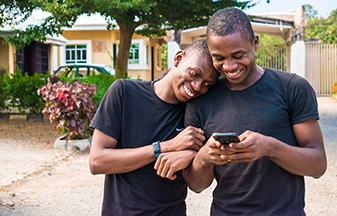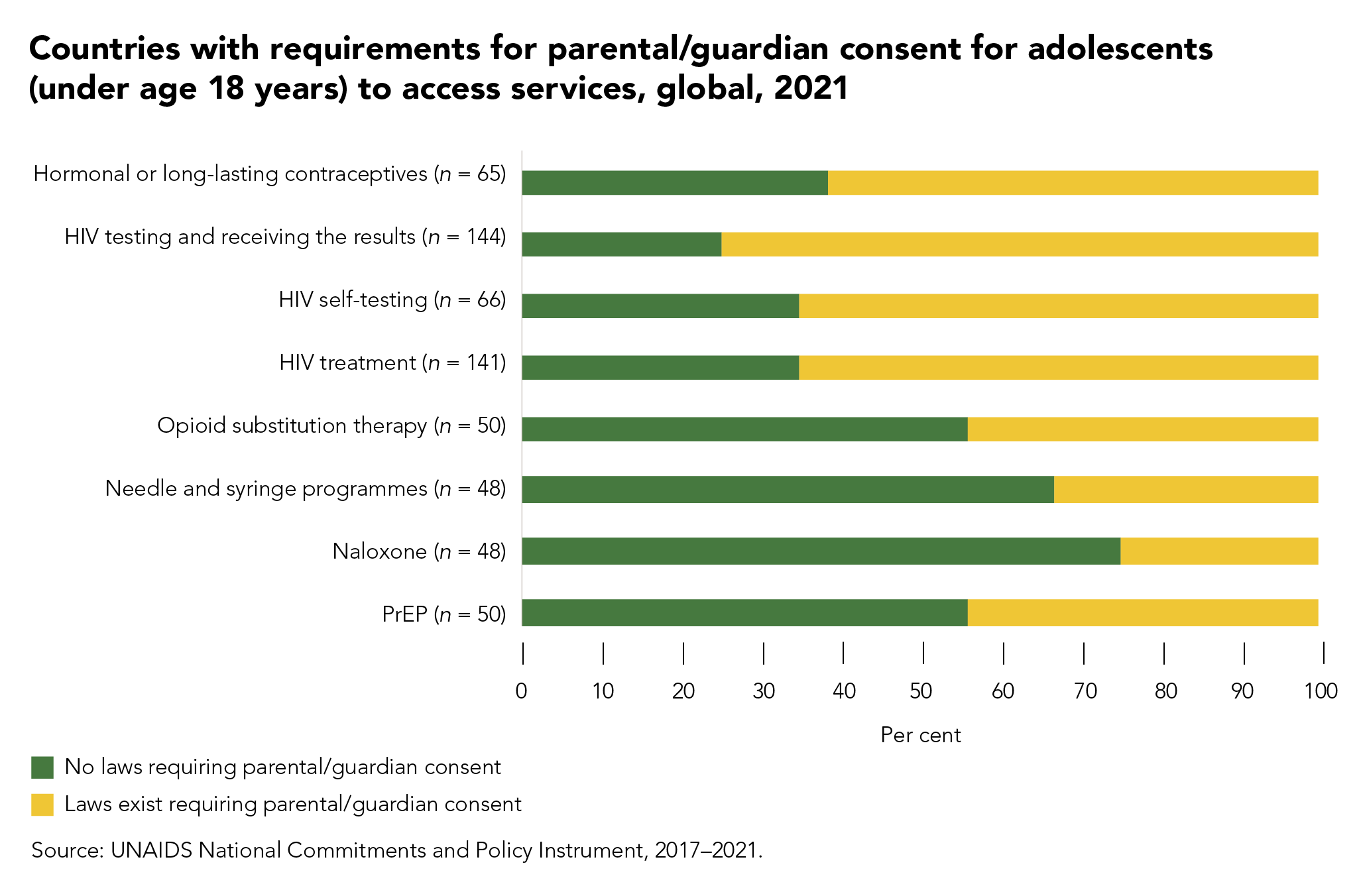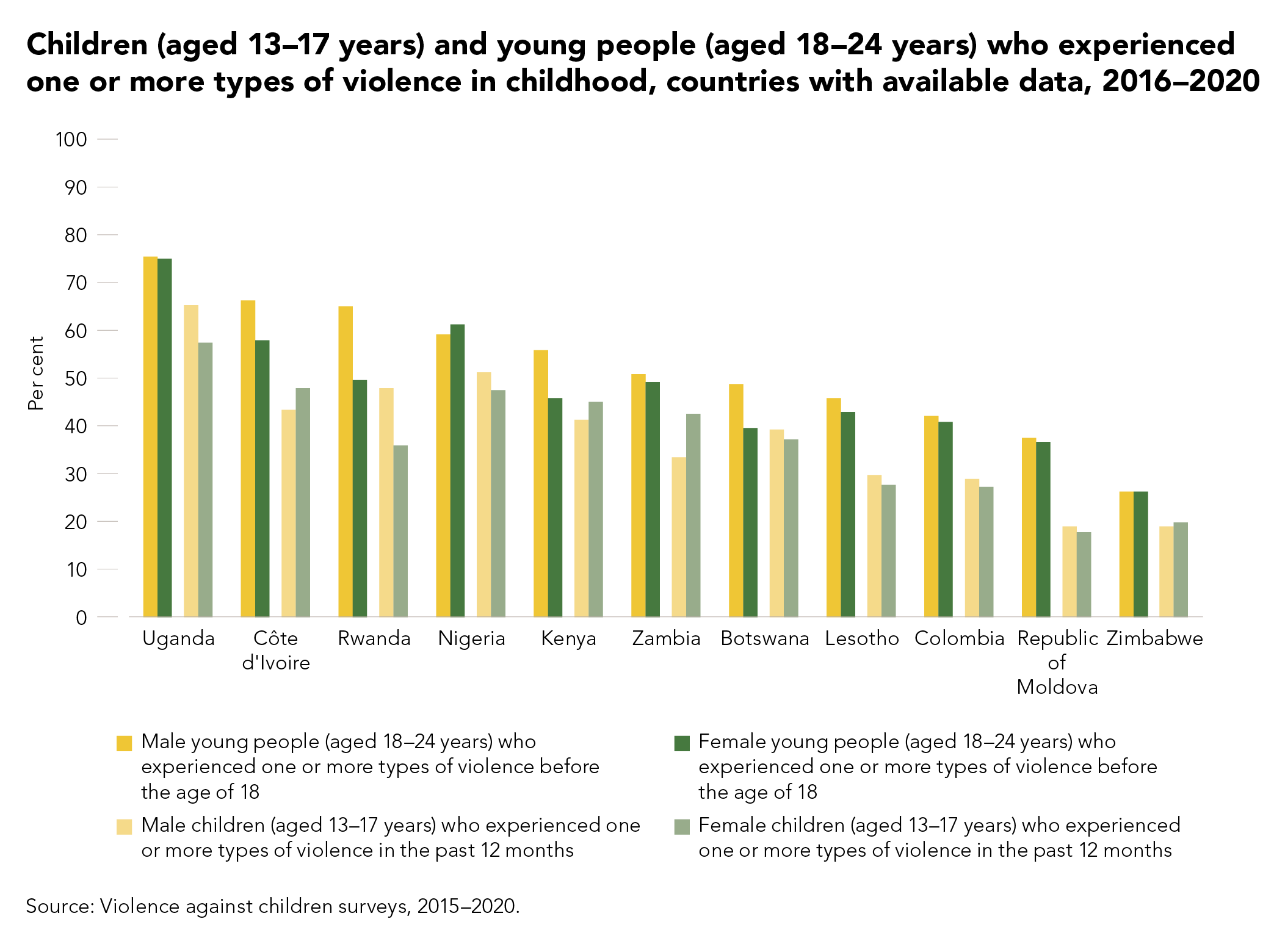“Young people here don’t regularly access HIV services. I really want to invite my friends to get tested, but they are all so afraid. They don’t have enough information or support from their families and are scared about finding out their status,” said Andika Bayu Aji, a young person from West Papua, Indonesia.
The HIV epidemic among young people in Asia and the Pacific has largely been overlooked, even though about a quarter of new HIV infections in the region are among people aged 15–24 years. The vast majority of young people affected by HIV in the region are members of vulnerable populations—people living with HIV, gay men and other men who have sex with men, transgender people, sex workers and people who inject drugs.
Like many countries in the region, Indonesia’s HIV infections among young people, which make up almost half of new infections, are attributed to stigma and discrimination, poor educational awareness of HIV, lack of youth-friendly services and social taboos.
“Young people far too often experience stigma and discrimination in health-care settings. Health-care workers are first-line responders. If the services are bad, young people won’t use them and they will tell other young people not to use them. We are limited by which clinics we can access because many, if not most, are not youth-friendly,” said Sepi Maulana Ardiansyah, who is known as Davi and is the National Coordinator for Inti Muda, the national network of young key populations in Indonesia.
A recent study conducted by Inti Muda and the University of Padjajaran found that the willingness of young people to access services in provinces like West Papua was very low, mainly due to the lack of youth-friendly services and the poor understanding of key population issues by health-care workers. Young people often face difficulty accessing services because of the remoteness of clinics and hospitals and encounter barriers such as the age of consent for testing.
Stigma and discrimination, and especially discrimination from health-care providers, discourages many young key populations from accessing HIV services. Concerns about privacy and confidentiality are some of the main challenges. Additional obstacles include that the opening hours of public clinics are often ill-suited to people’s daily routines, and the assumptions and attitudes of health-care workers can be judgemental, especially on issues around sexual orientation, gender identity and mental health.
Between 14 and 18 March, Inti Muda, with technical support from Youth LEAD and UNAIDS, organized a sensitization training of health-care workers in two cities, Sentani and Jayapura, in the West Papua region. More than 50 health-care workers participated. A few days before the training, Inti Muda organized a festival for more than 80 young people, joining in an effort to engage young people in the HIV response and generate demand for access to HIV services.
“Prior to this training, I didn’t know about the different needs of key populations, which hinders our ability to reach them. We learned about important techniques for reaching young people, such as providing youth-friendly counselling, digital interventions and encouraging them to get tested,” said Kristanti, from the District Health Office of Jayapura.
“I learned that the needs of young people are diverse. The training will allow us to improve our services to become youth-friendly, which is now our main priority,” added Hilda Rumboy, a midwife in charge of the HIV Services Department at the Waibhu Primary Health Centre.
The training and festival were supported by the Australian Department of Foreign Affairs and Trade (DFAT). The recent investment of AU$ 9.65 million set aside by the Australian Government from the sixth replenishment of the Global Fund to Fight AIDS, Tuberculosis and Malaria (Global Fund), including DFAT funding of AU$ 2 million previously committed to UNAIDS, is aimed at reducing the annual number of new HIV infections among key populations in Cambodia, Indonesia, Papua New Guinea and the Philippines.
“Ensuring young people and vulnerable groups have access to accurate, digestible information about how to prevent HIV, and that testing facilities are cheap and accessible, is crucial to ending the AIDS epidemic. We are proud to work with local communities and UNAIDS to increase availability of information on HIV, improve the reach and quality of medical services and encourage young people and vulnerable groups to get tested,” said Simon Ernst, Acting Minister Counsellor for Governance and Human Development at the Australian Embassy in Indonesia.
The training is based on the manual developed by Youth LEAD in 2021, which was financially supported by the Global Fund’s Sustainability of HIV Services for Key Populations in Asia Programme and the UNAIDS Regional Support Team for Asia and the Pacific. Under the DFAT grant for the next two years, Youth LEAD will expand the training to two more countries, Cambodia and the Philippines, supporting networks led by young people in the respective countries to roll out the training.
“Young people still encounter many challenges that prevent them from accessing the life-saving health care they need. The UNAIDS Country Office for Indonesia is working closely with the UNAIDS regional support team and DFAT to ensure that networks led by young people have the capacity and leadership capabilities to take control of the HIV response and to have direct involvement in creating safe spaces where young people can access HIV services free from stigma and discrimination,” said Krittayawan Boonto, the UNAIDS Country Director for Indonesia.






